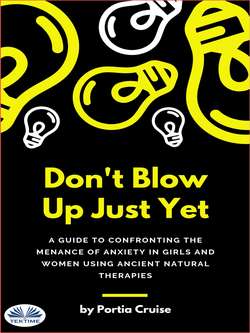Читать книгу Don’t Blow Up Just Yet - Portia Cruise - Страница 11
На сайте Литреса книга снята с продажи.
ОглавлениеCategories of Anxiety Disorder
Generalized Anxiety Disorder
People who suffer from this type of anxiety disorder have an exaggerated sense of worry over everything, including trivial issues even if there is nothing that provokes it.
Obsessive-Compulsive Disorder (OCD)
Obsessive- Compulsive Disorder (OCD) is an anxiety disorder that is usually associated with recurring, intrusive and unwanted thoughts often classified as obsessive. These thoughts tend to be repeated which is why it is called compulsive. People with this disorder worry and imagine the worse about anything and may often acknowledge their thoughts as silly all in a bid to get temporal relief. They may indulge in repetitive behaviors that include checking already locked doors, washing hands consistently, and washing their clothes every time because they worry about germs.
Panic Disorder
This type of disorder is characterized by unpredictable, intense fear and an overwhelming feeling of anxiety. This is majorly followed by repeated episodes of shortness of breath, heart palpitations, dizziness, and chest pain. When a person suffers from recurrent panic attacks or consistent fears for a period that exceeds more than a month, they are said to suffer from panic disorder.
Post-Traumatic Stress Disorder (PTSD)
A Post-Traumatic Stress Disorder (PTSD) is a type of anxiety disorder that can develop after the person has been exposed to a terrifying event or ordeal in which grave physical harm occurred or was threatened. Some traumatic events that can trigger PTSD include violent personal assaults, natural or human-caused disasters, accidents, or military combat.
Social Phobia (or Social Anxiety Disorder)
Humans as social animals tend to be conscious of how others perceive them. But people with social phobia or Social Anxiety Disorder are people who have an intense fear of being criticized, humiliated or scrutinized. It can be as mild as when the person has an insane fear of speaking in a formal or informal situation, eating or drinking in the company of people. This disorder is not discriminatory and does not care about the person’s age, color, race, or level of education.
Specific Phobia Disorder
The social phobia is similar to the specific phobia and in this type of disorder, the person is unable to overcome the fear of doing a particular thing even though there is no need to fear and no matter the reassurances. Such fears may include phobia of heights, depths, water, taking flight and even being in a dark environment.
